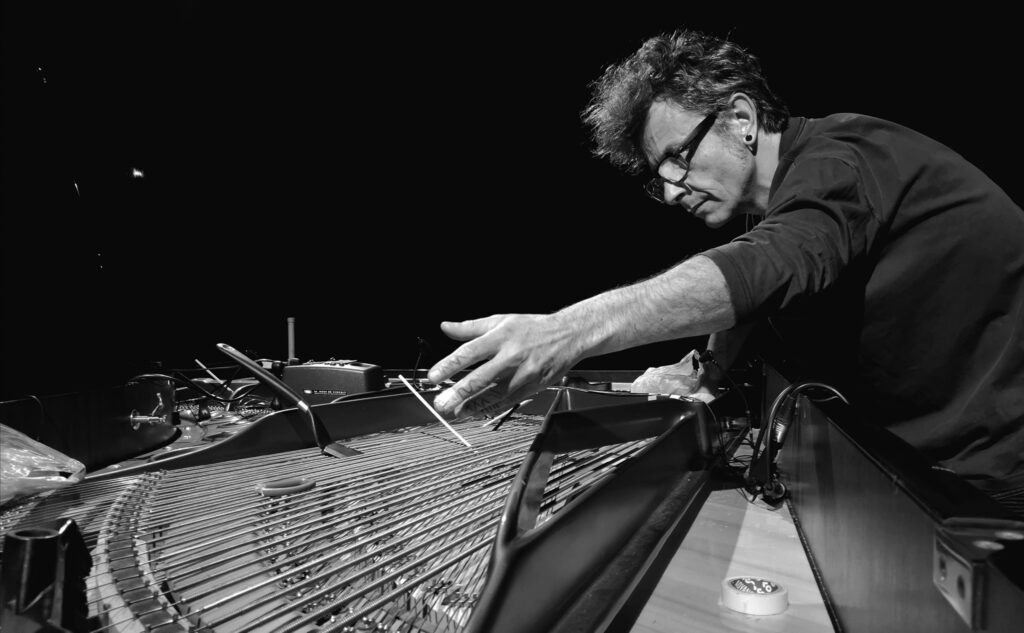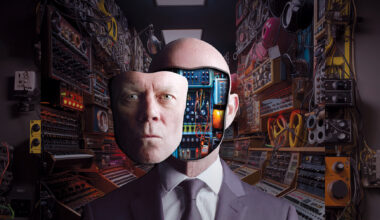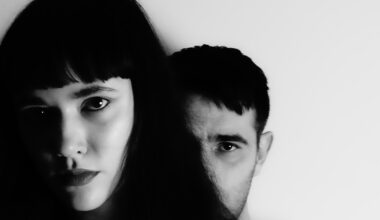Philippe Petit, co-founder of thriving electronic/modular synthesis platform Modulisme, is a prolific, modular-focused recording artist in his own right

“No man ever steps in the same river twice,” said Heraclitus. It’s a philosophy that French modular musician and polymath Philippe Petit has come to embrace in recent years.
“Every time I come back from the sea, I tell myself that no two waves are the same,” he says. “So my trick is not to repeat myself.”
Despite his zen-like approach to waveforms, Petit is a man who gives the impression of being perpetually on the go, producing music, fanzines, labels, radio shows and journalism. Given this wealth of activity, there seems to be little room for repetition and no signs of fatigue just yet.
“2023 is a very special year for me, marking 40 years of activism!” he declares.
Petit has been part of the Marseille musical underground since the 1980s, releasing music by David Toop, Scanner and Mira Calix, and collaborating with the likes of Stephen O’Malley, Lydia Lunch and Cosey Fanni Tutti, to name just a few. Then around five years ago he got the modular bug. He’d first got into electronic music after seeing Kraftwerk in 1978, buying records and working with synths, though never feeling a synergy with them.
“I had been relying on a Roland Fantom G6, an ARP String Ensemble, a Minimoog and a digital audio station,” he says. “To be honest, I felt bored with creating music on a DAW. So it wasn’t until 2018 that I fully understood and embraced modular synthesis. I was amazed to come closer to understanding ways to create the music I was hearing in my mind.”
So what gear does he use now? Is he Team Moog or Team Buchla?
“My first introduction was with a Moog System 55 and a Buchla Easel. Although the Moog had a wonderful sound, I had a feeling of deja vu, and I didn’t find myself as much enamoured of its classicism as I was of Don Buchla’s very particular way of looking at things.”
His approach to modular synth, it seems, veers towards the mindful.
“The priority is to focus on what is right there in front of me under my fingers,” he says. “I play only for my own pleasure without any specific goal or challenge. Carpe diem! This is my favourite way of learning my instrument, creating a special relationship with it.
“The strength of the modular synthesiser is that it is not totally considered as an instrument for which one has to follow a playing technique or method. Each technical problem is overcome by thought or by patching – every patch leads to a new surprise. The more I learned, the more addicted I became.”
That addiction led to Modulisme, an online resource that also doubles up as a label, putting out music from artists such as Finlay Shakespeare, Rodent and Michael J Schumacher.
“It’s a platform that aims to support original composing for analogue modular systems,” he explains. “It provides resources and interviews with weekly radio programmes aired via 18 different stations including Resonance FM, CAMP radio and our partner Modular-Station, the first internet radio and web portal dedicated to electronic modular synthesis.”
Exploring and showcasing modular music from all over the world, Modular-Station recently passed one million listens.
“Some are enjoying it enough to return,” says Petit with a smile.
Petit is a prolific modular artist too. His latest release is an extended interpretation of Dante’s ‘The Divine Comedy’, to be followed by a typically enigmatic prequel, titled ‘Drinking The Acheron River’, which he says is his most ambitious work yet. Presented in four parts, it features his Buchla System 200 and the Serge 73-75 analogue synths, prepared piano, a mysterious contraption called a “daxophone-teponaztli”, a cimbalom, a string exciter, a spectral processor and voices. Expect Petit to be making waves with it very soon.
For more, see modulisme.bandcamp.com





